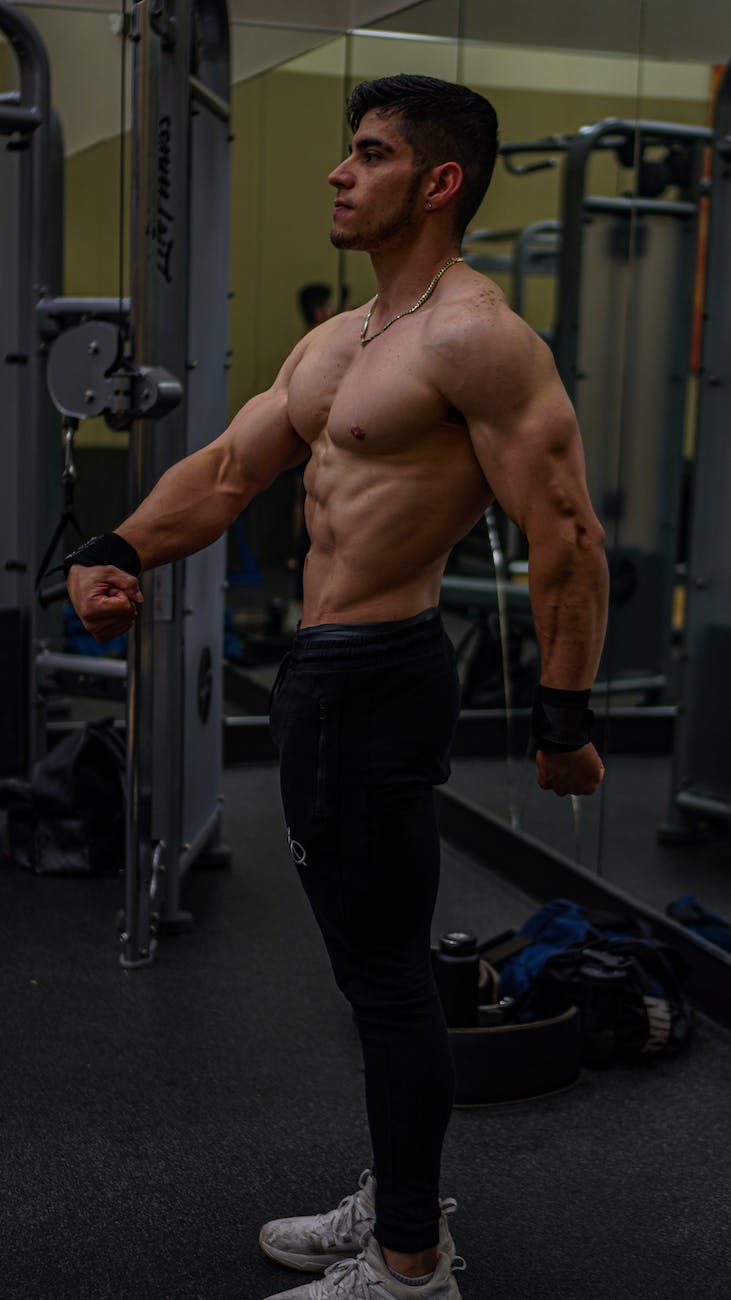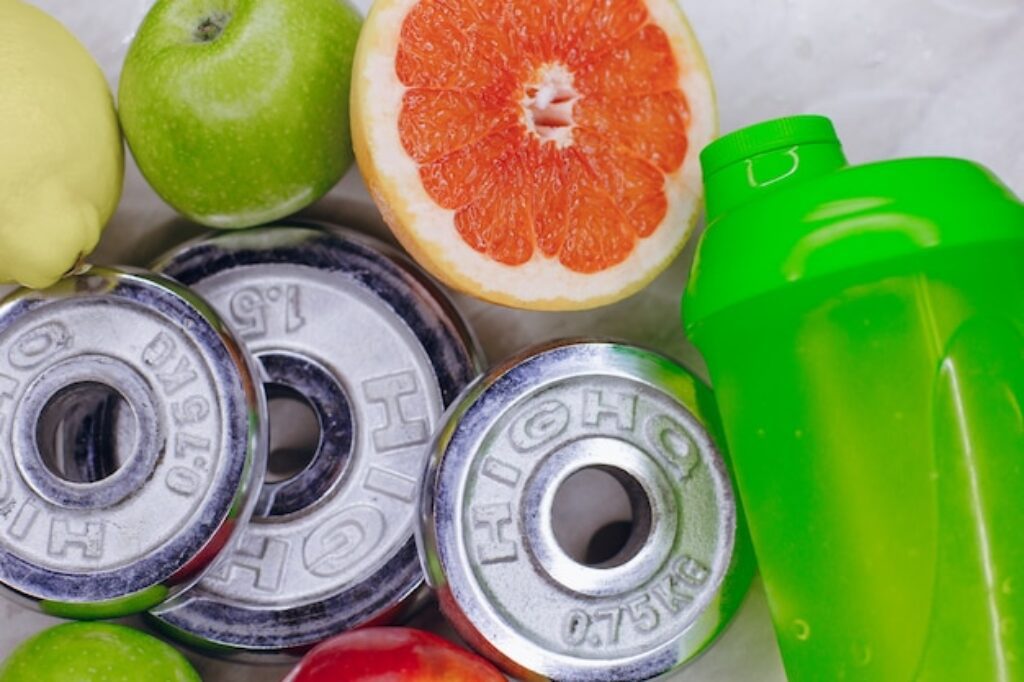Proteins are the building blocks of life and muscle building. They are found in every cell, tissue, and organ in the human body. Proteins are crucial for various bodily functions, but they play a particularly essential role in muscle building. The muscle tissues get damaged when you engage in regular physical activities such as weightlifting. Proteins aid in repairing these damaged tissues, leading to muscle growth.
Muscle building, also known as muscle hypertrophy, is a process that involves an increase in muscle size through a balance of protein synthesis and breakdown. Various factors, including the type of exercise, nutrition, and genetics, influence this process. Among these, nutrition, specifically protein intake, plays an essential role.
In the world of fitness and bodybuilding, proteins are hailed as the holy grail. They’re crucial to building muscle, losing fat, or improving athletic performance. However, there’s more to proteins and muscle building than meets the eye. This blog post will delve deeper into the essential role of proteins in muscle building.
The Science Behind Proteins and Muscle Growth
Proteins are made up of smaller units known as amino acids. These amino acids are the building blocks of our muscles. When we consume protein, our body breaks it down into these amino acids, which are then used for various functions, including repairing and building muscle tissue.
Muscle growth occurs when the rate of muscle protein synthesis (building new muscle proteins) exceeds the rate of muscle protein breakdown (breaking down old or damaged muscle proteins). This state is called positive protein balance or muscle protein balance.
Exercise, specifically resistance and strength training, stimulates muscle protein synthesis. However, the body can maximally stimulate muscle protein synthesis with adequate protein. This is where dietary protein comes into play. It provides the necessary amino acids that the body needs to repair and build new muscle tissue.
Essential Amino Acids for Building Muscle
Amino acids are classified into essential, non-essential, and conditional. The body cannot produce essential amino acids, and must be obtained from the diet. These include histidine, isoleucine, leucine, lysine, methionine, phenylalanine, threonine, tryptophan, and valine.
Among these, leucine, isoleucine, and valine, collectively known as branched-chain amino acids (BCAAs), are essential for muscle building. They stimulate muscle protein synthesis and prevent muscle protein breakdown, leading to muscle growth.
The Role of Dietary Protein in Muscle Building
Dietary protein plays a crucial role in building muscle. It provides the essential amino acids that our body needs to repair and build muscle tissue. It also helps maintain the positive protein balance necessary for muscle growth.
The type of protein you consume also matters. High-quality proteins, such as those found in dairy, meat, eggs, and soy, contain all the essential amino acids in the right proportions. These proteins are more effective at promoting muscle protein synthesis than lower-quality proteins.
How Much Protein Is Needed for Muscle Growth?
The amount of protein needed for muscle growth depends on several factors, including age, sex, body weight, and level of physical activity. However, research suggests that individuals engaging in regular resistance or strength training should consume about 1.6 to 2.2 grams of protein per kilogram of body weight per day.
It’s important to spread your protein intake throughout the day rather than consume it all simultaneously. This is because the body can only utilize a certain amount of protein at a time for muscle building.

Best Protein Sources for Muscle Building
High-quality proteins are the best for muscle building. These include lean meats, poultry, fish, dairy products, eggs, and soy. Plant-based proteins, such as beans, lentils, and whole grains, can also support muscle growth, but they are often lower in one or more essential amino acids.
Whey protein, found in milk, is particularly beneficial for muscle building. It’s rapidly digested and absorbed, leading to a quick increase in muscle protein synthesis. It’s also rich in leucine, the most important amino acid for muscle growth.
Protein Timing and Muscle Building
The timing of protein intake can also affect muscle growth. Consuming protein before and after a workout can maximize muscle protein synthesis. However, consuming protein throughout the day is important to maintain a positive protein balance.
Common Misconceptions About Protein and Muscle Building
Many things need to be clarified about protein and muscle building. One common misconception is that consuming more protein will increase muscle growth. However, there’s a limit to how much protein the body can use for muscle building. Consuming more than recommended will not lead to more muscle growth and may even have negative health effects.
Another misconception is that protein supplements are necessary for muscle building. While they can be convenient, getting enough protein from food alone is possible.
“Proteins are the building blocks of life, the scaffolding for your muscles. In the realm of muscle growth, they are not just participants, but the architects, tirelessly working to create strength out of effort.”
Supplements vs. Natural Proteins in Muscle Building
Protein supplements can be a convenient way to increase protein intake, especially for those with a busy lifestyle. However, they should not replace whole foods. Whole foods provide protein and other essential nutrients that are beneficial for overall health and muscle growth.
Natural proteins from food are often more satisfying and can help control hunger better than protein supplements. They also contain other nutrients such as healthy fats, vitamins, and minerals supporting muscle growth.
Mastering the Basics: A Comprehensive Guide to Muscle Building for Beginners
Conclusion: The Undeniable Role of Proteins in Muscle Building
Proteins play an essential role in muscle building. They provide the necessary amino acids that our body needs to repair and build muscle tissue. Regular exercise and adequate protein intake are key to maximizing muscle growth.
However, consuming high-quality proteins and spreading your protein intake throughout the day is important. While protein supplements can be convenient, they should not replace whole foods. Always remember, when it comes to muscle building, balance is key.
In the end, proteins are indeed the building blocks of muscle. Their importance in the process of muscle building can’t be overstated. So the next time you hit the gym, make sure proteins are a significant part of your diet. The results might surprise you.
The Science Behind Muscle Recovery: Effective Strategies for Post-Workout Healing





